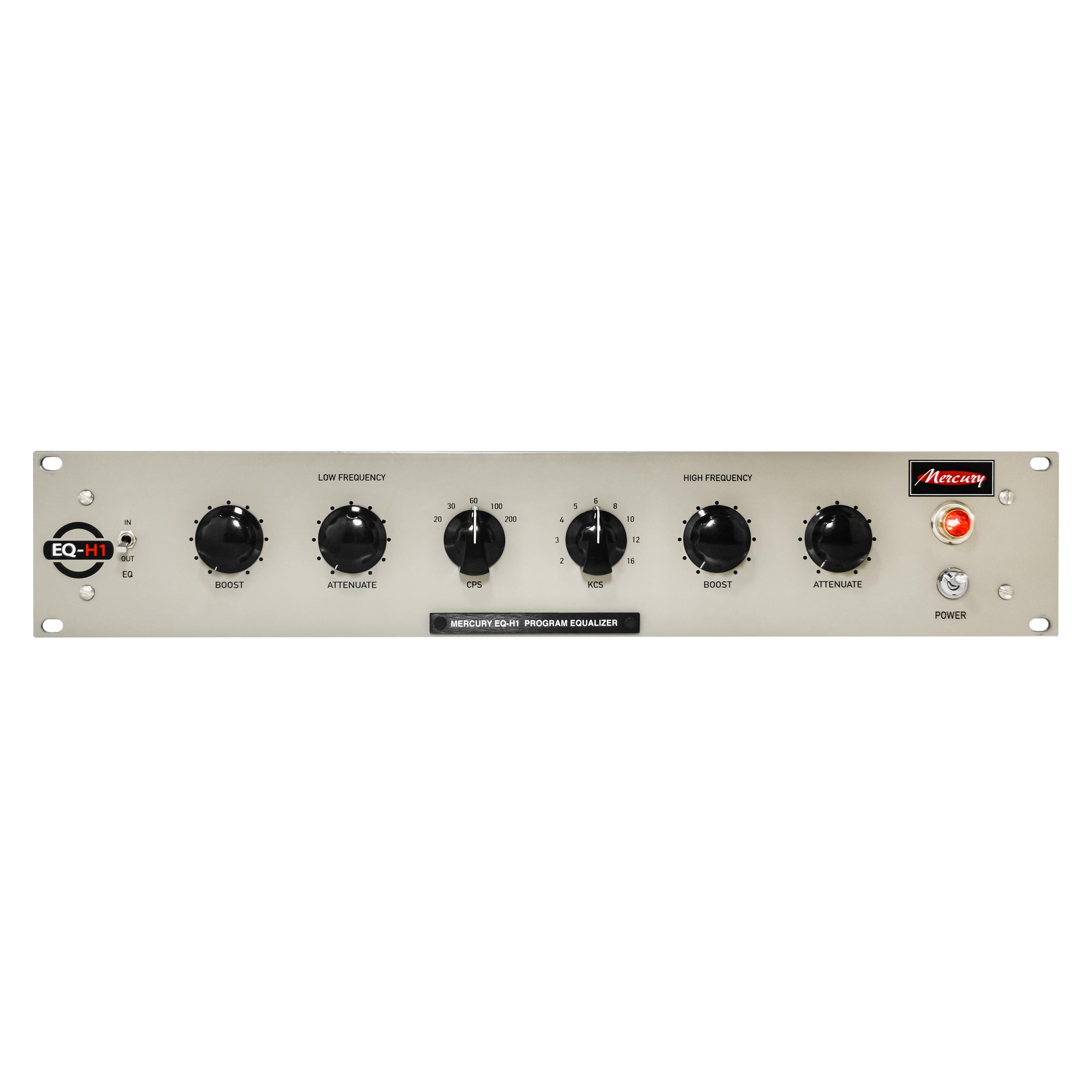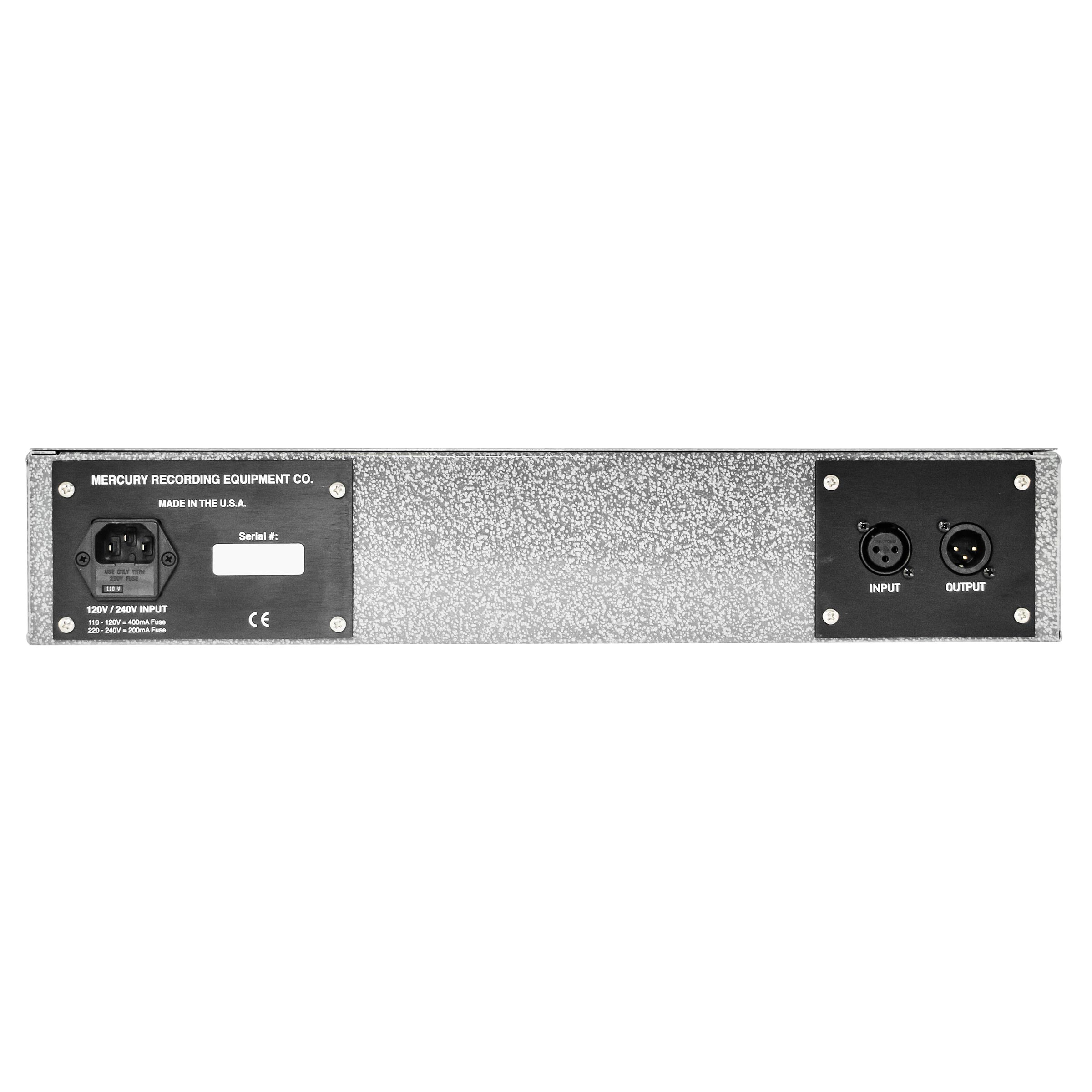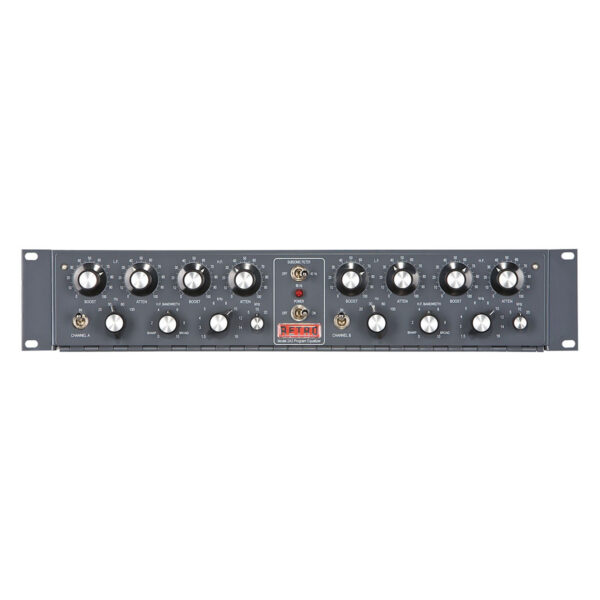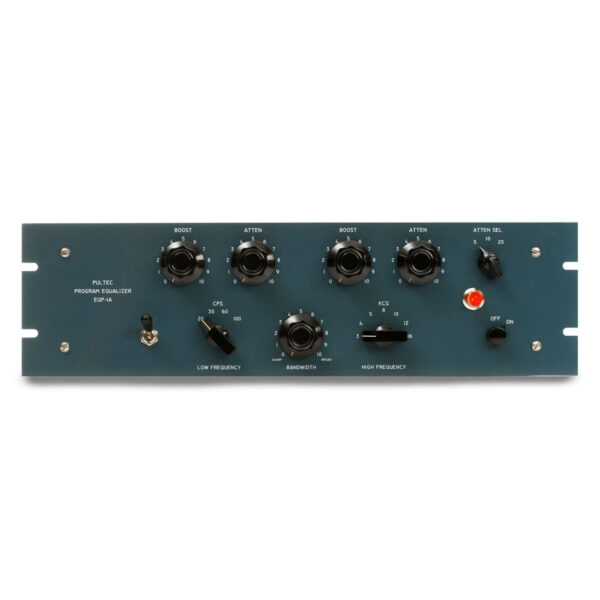Mercury EQ-H1 Studio Program Equalizer
The Mercury EQ-H1 boasts a passive EQ circuit that utilizes a single ended gain make up amplifier topology. This circuit is based on the vintage ‘Pultec EQH’ circuit and provides a musically satisfying result that cannot be achieved with active and parametric EQs. Unlike those methods, the EQ-H1 does not rely on negative feedback, which can cause phase and dynamic distortions, to achieve equalization. The EQ-H1, along with all other Mercury products, has transformer balanced (XLR) input and outputs. The only updates made to the original design are a more powerful and stable power supply, running DC on the heaters instead of AC, and two additional frequencies to expand the range and increase flexibility.
The Mercury EQ-H1, EQ-P1, EQ-H2, and EQ-P2 are all modelled after the original Pultec equalizers. These tools were initially developed to address the limitations of recorded music, which are typically most noticeable in the highest and lowest frequencies of the program material. Like the original Pultec EQs, the Mercury Studio Program Equalizers were designed to restore the lost musicality and vitality of recordings. Passive equalizers with tube gain make up amplifiers, also known as ‘Pultec style’ equalizers, have been the most effective method for achieving this goal in music production. The interaction between the passive boosting and attenuating shelving EQs, which do not rely on negative feedback, as well as the transformers, tubes, and other amplification circuitry, all contribute to the incredibly musical character of these products. While working engineers may try other types of equalizers, they inevitably return to the Pultec style as their preferred equalizer for adding the final touches during tracking, mixing, and even mastering.
In the current era of digital recording, where the source material recorded into the DAW is exact and lacks the subtle compression, rounded edges, and “pixie dust” that were present in analog tape recordings, the Mercury family of equalizers is more necessary than ever. These equalizers can help to restore the musicality, warmth, and tone to your tracks that have been cherished by music producers for years.
Frequencies:
- Low Frequency Select (CPS; Cycles per second): 20, 30, 60, 100, 200 Hz
- Low Frequency Boost Control: Shelf Boost, adjustable from 0dB to +13dB
- Low Frequency Attenuate Control: Shelf Attenuate, adjustable from 0dB to -17dB
- High Frequency Select (KCS; kilocycles per second): 3, 4, 5, 8, 10, 12, 16 kHz
- High Frequency Boost Control: Shelf Boost, adjustable from 0dB to +16dB
- High Frequency Attenuate Control: 10k Shelf Attenuate, adjustable from 0dB to -16dB




